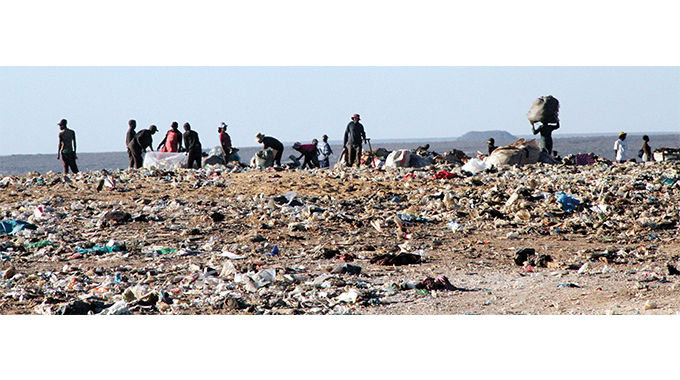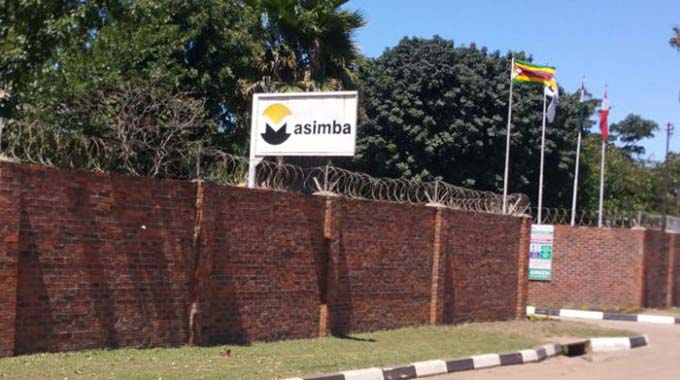Zimbabwe grows despite drought
Zimbabwe’s economy is a lot stronger than many suspected with growth this year likely to reach 2 percent despite the 21,2 percent decline in agriculture as a result of the very severe El Nino drought and the need to import almost 800 000 tonnes of maize to add to the carry over reserves.
Giving a very detailed Mid-term Budget and Economic Review in Parliament yesterday, Minister of Finance, Economic Development and Investment Promotion Mthuli Ncube was able to be reassuring, partly as a result of the gains from the new ZiG currency, with no supplementary budget needed and essentially no new taxes.
But he introduced a range of measures to make sure the taxes already levied are collected, and appears to have found a way of using a presumptive VAT tax to finally break into the informal sector and start the long overdue payment of taxes from tuckshops. VAT is a tax on gross, not profits, so every business that sells goods or services should be paying it.
Economic growth this year is being driven by mining, with 5,2 percent growth and manufacturing with 2,5 percent. Larger jumps are seen across a range of service sectors, with 12 percent being seen in the growth of accommodation and food service and 11 percent in information and communications. But the mining and manufacturing growth is in actual physical goods and in many ways are the replacement of the harvests not made by the famers.
With the harvests of maize and traditional grains running in total a just over half last year’s figures, Zimbabwe will have to import almost 800 000 tonnes of grain, around 300 000 to add to the reserves from last year for the Government emergency feeding schemes and close on 500 000 by the millers for the commercial requirements.
Almost every agricultural produce, except for wheat which is expected to grow strongly and horticulture, which is rising, was hit. The two exceptions are the 100 percent irrigated crops and show the importance of the Government’s continued spending on irrigation.
The fundamentals are remaining sound. While the balance of trade remains negative, and with some drop in agricultural exports and a significant rise in agricultural imports will not close this year, the balance of payments remains strongly positive, with the diaspora remittances being the major extra inflow after export earnings. So we remain roughly where we have been for afew years.
On the fiscal fundamentals, Minister Ncube was able to announce that while revenues for the first six months were slightly below expectations, at ZiG36,5 billion, with ZiG33,9 billion from taxes, while expenditure was as ZiG38,9 billion. More importantly expenditure for six months was at 44, 2 percent of the annual approved budget, so the Government is keeping a tight control on how it spends.
But the Minister was careful to note, in some detail, that he was able to maintain the capital budget and has not had to switch to emergency measures to cope with the drought and associated social payments.
In some cases he is even able to use insurance payments to cover these. He is also stepping up on BEAM for schooling, as well as the money neeed to buy grain or make social payments for food.
Those who worry that the books might be juggled to make the numbers come out right should look at the first few pages of the statement. The Minister started the presentation with Zimbabwe’s raidly rising reputation for budget transparency and full disclosure of debt, being now in the top tier internationally and not just in Africa.
The modest deficit of ZiG2,4 billion was funded by borrowing, and here the introduction of the ZiG has allowed the Government to slash borrowing costs.
Although long-term domestic finance is not really available, although the Minister wants institutional lenders to increase State lending almost three-fold to 20 percent, Treasury has been able to borrow on local markets at 9 to 10 percent annual interest.
This is a market related interest rate based on the ZiG stability and very low expected inflation. The 20 percent bank rate sent by the Reserve Bank of Zimbabwe’s Monetary Policy Committee, the minimum rate that everyone else can borrow at, including State-owned enterprises, brings in other factors such as the need to control borrowing, prevent borrowing for speculation and the like.
The Treasury is still paying a positive interest rate, so is not creating any distortions, but wins because it is not subject to the bank rate.
But the Minister is correct that more longer-term finance, the restoration of a gilts market, is needed.
While obviously borrowing for recurrent expenditure must be totally banned and never resumed, a chunk of the capital budget could be financed through borrowing.
In particular, those areas of capital expenditure where there will be an income flow, directly or even indirectly so long as it is all but guaranteed, can use some longer-term loan funds.
When it comes to taxation the Minister was not listening to those who want lower taxes, except in one case where it has become apparent that a public-health disaster could be brewing. Putting meat and poultry into the general VAT group at the beginning of the year saw a flow of slaughtering moving from approved formal abattoirs to informal “bush poles”.
So we moved from almost two-thirds of all meat in butcheries being inspected to less than a third of butchery meat. Until systems are in place that enforce all slaughtering to be done in approved conditions with on-site inspection, it seems that we have to live with the fact that butchers will not pay VAT. But this does not mean that the Finance Ministry should not work with others to get all slaughtering properly done, and then figure out how it can be taxed.
But for the rest the Minister has largely kept the taxes he ahd in place. These were set in US dollar terms although payable in local currency in many cases, so the horror inflation of the first three months of the year does not need to be taken into account for the tax bands in something like personal income tax.
But the Minister is still keen on getting taxes out of the informal economy, and in this he will have backing from a lot of other people, those who pay taxes and businesses who feel that competition from those who avoid the taxes they pay is unfair.
Moves made to block some of the currency speculation and black market pricing by barring tuckshops from buying from manufacturers and barring them from buying from wholesalers unless they were registered and had a tax clearance ran into problems almost from the start.
However, thought has been applied over the past few months and now Minister Ncube seems to have found solution.
Tuck-shops, any anyone else for that matter as business or individual, buying from a manufacturer or wholesaler will be charged a presumption tax of 5 percent if they cannot produce VAT clearance certificates. While VAT is 15 percent on most items it has been paid up in full to the point where the tuck-shop owner collects an order, so there is only the value on the last retail leg still missing.
The setting of this at a presumed 5 percent implies that the Finance Ministry thinks that the final mark-up is unlikely to be above 33,3 percent. In fact considering the exceptional competition in this sector that is probably on the high side, but then the informal shop always has the option if they wish of registering for VAT, paying the bills and getting the tax certificate.
What the Minister is doing is avoiding the trap of spending more on enforcement than what is collected, a problem with small traders in the informal sector. This presumption tax will be collected by a few score large formal businesses, who are so easy to check out that they will simply forward the money they collect automatically.
As we have noted with the payment transfer tax collected by banks, building societies, the savings bank and the mobile wallet operators, 22 in total, the Government gets almost instant tax payment at almost zero cost.
The Minister did cut the presumption taxes in the transport sector, but coupled with a provision that will make it impossible to register the vehicles in that sector unless the tax has been paid, so going for a lower tax but one that everyone will pay.-ebusinessweekly










